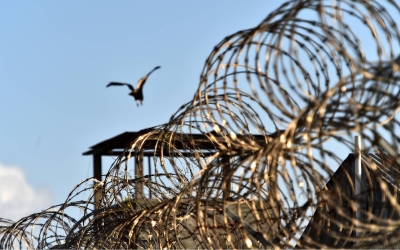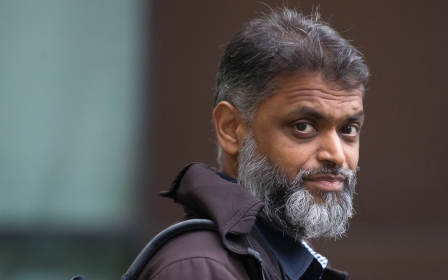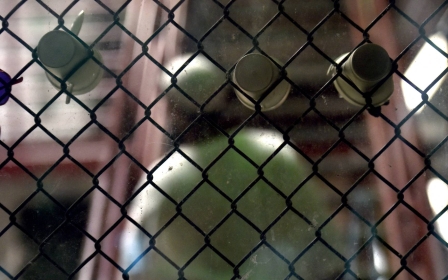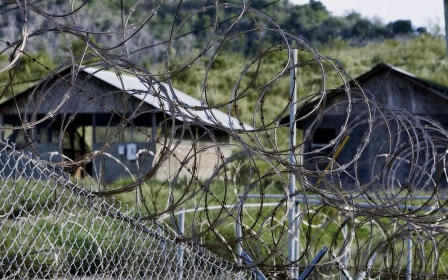Guantanamo Bay: Several detainees test positive for Covid-19
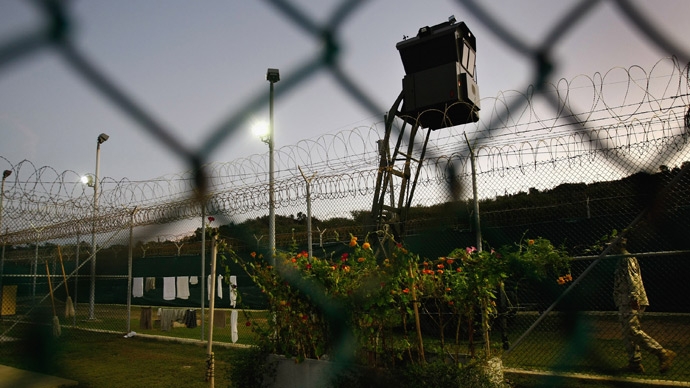
Multiple detainees at the Guantanamo Bay military prison have tested positive for Covid-19, sources told Middle East Eye, creating fears that a larger outbreak could endanger the lives of the prison's ageing detainee population.
It is the first news of a Covid-19 outbreak at the facility since the pandemic began more than two years ago.
The outbreak was first reported by The Intercept, which said that at least four detainees had contracted the virus after an outbreak in Camp Six.
Camp Six is one of Guantanamo Bay's newer buildings, constructed in 2006, and houses detainees designated "low-value" and who have never been charged with a crime.
The $37m prison unit was originally designed as a medium-security facility with communal eating and recreation areas. However, the communal eating area was closed off and recreation areas were turned into individual cages.
Mansoor Adayfi, a former Gitmo detainee and now Guantanamo project coordinator for the London-based advocacy group Cage, told MEE he was also informed of at least four detainees who have tested positive for Covid-19, but said the US government was not publicising any information about which detainees had the virus.
"Right now we're really concerned. How are they being treated? I hope they have been taken care of," said Adayfi, who is also the author of the memoir, Don’t Forget Us Here, which chronicles his time at the notorious prison.
"When I was there, at least two brothers died of medical negligence."
A lawyer for several Guantanamo detainees told MEE that they were informed two prisoners had tested positive for the virus, adding that they were unaware of the detainees' wellbeing.
According to a Human Rights Watch report in 2008, most of the detainees in Camp Six spent at least 22 hours a day in windowless concrete and steel cells that measure to be 6.8x12 feet in size. The facility transitioned to communal living in 2010, according to Adayfi.
The Department of Defence did not respond to MEE's request for comment.
Concerns for Guantanamo's ageing population
For years, rights organisations and civil society groups have criticised the US government for the lack of medical facilities provided to properly treat many of the detainees in the prison.
A 2019 report by The Center for Victims of Torture and Physicians for Human Rights found that detainees are subject to medical neglect, and medical equipment and expertise available on-site are "increasingly insufficient to address detainees' health needs".
Testimony given by the detention centre's chief medical officer last week, which was shared with MEE, said that while primary care is readily available to the prison population, many more specific procedures or treatments are not possible at the base.
"I think the quality is overall above average [sic ] and the access to care, especially at least primary care, is superb," said Corry Jeb Kucik, chief medical officer at the US Naval Station at Guantanamo Bay.
"But again, where you're going to find difficulties and breakdowns and pinch points are the, you know, when we need to see, for instance, this special study or this special provider."
Kucik noted that the magnetic resonance imaging (MRI) machine that was transferred to the island, which is used for scanning the human body and providing images of a person's organs for diagnoses, has been out of service since November 2021.
'We're especially concerned about the elderly ... They are very vulnerable. Their immune systems are really weak'
- Mansoor Adayfi, Cage
Adayfi told MEE that he feared for the prison's most vulnerable population, the elderly, including detainees like Saifullah Paracha who is the oldest prisoner at 74. He suffers from a myriad of health problems, including: diabetes; coronary artery disease; cardiac diastolic dysfunction; gout; gastroesophageal reflux disease; and several other issues.
"We're especially concerned about the elderly, who have diseases like heart conditions or diabetes. They are very vulnerable. Their immune systems are really weak," Adayfi said.
There are currently 37 men being held at Guantanamo Bay, 20 of whom have been approved for transfer, while five are in indefinite detention. Ten are awaiting trial and two have been convicted, including Majid Khan, who has finished his sentence and is in need of a country to be transferred to.
A lawyer representing multiple detainees said the Covid outbreak makes it even more apparent that those men who have been cleared for transfer should be taken out of the prison.
"Given that the United States government has determined through the PRB (periodic review board) process that there is no continuing need to continue to imprison almost all of the men who are not charged, it's additionally outrageous that they're still there if there's Covid in the camp," said the lawyer, who asked to remain anonymous.
Since Biden has come into office, his administration has released only three detainees. During former President Donald Trump's four years in office, only one man - a Saudi citizen who was cleared under the Obama administration - was released.
Middle East Eye propose une couverture et une analyse indépendantes et incomparables du Moyen-Orient, de l’Afrique du Nord et d’autres régions du monde. Pour en savoir plus sur la reprise de ce contenu et les frais qui s’appliquent, veuillez remplir ce formulaire [en anglais]. Pour en savoir plus sur MEE, cliquez ici [en anglais].


